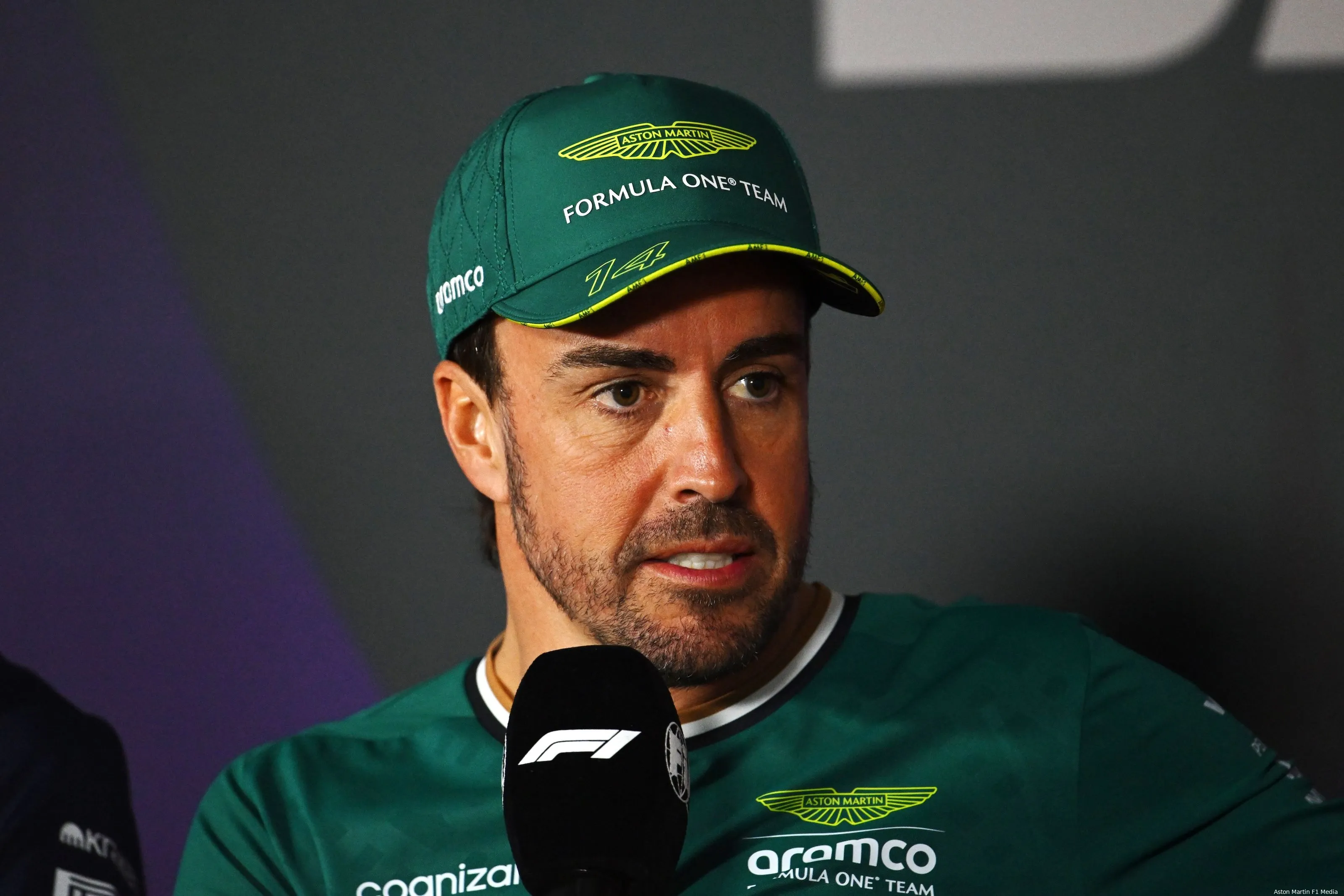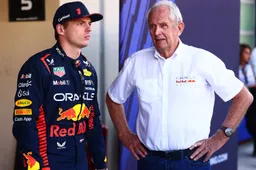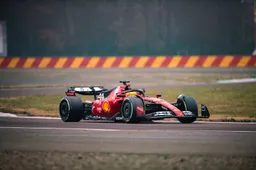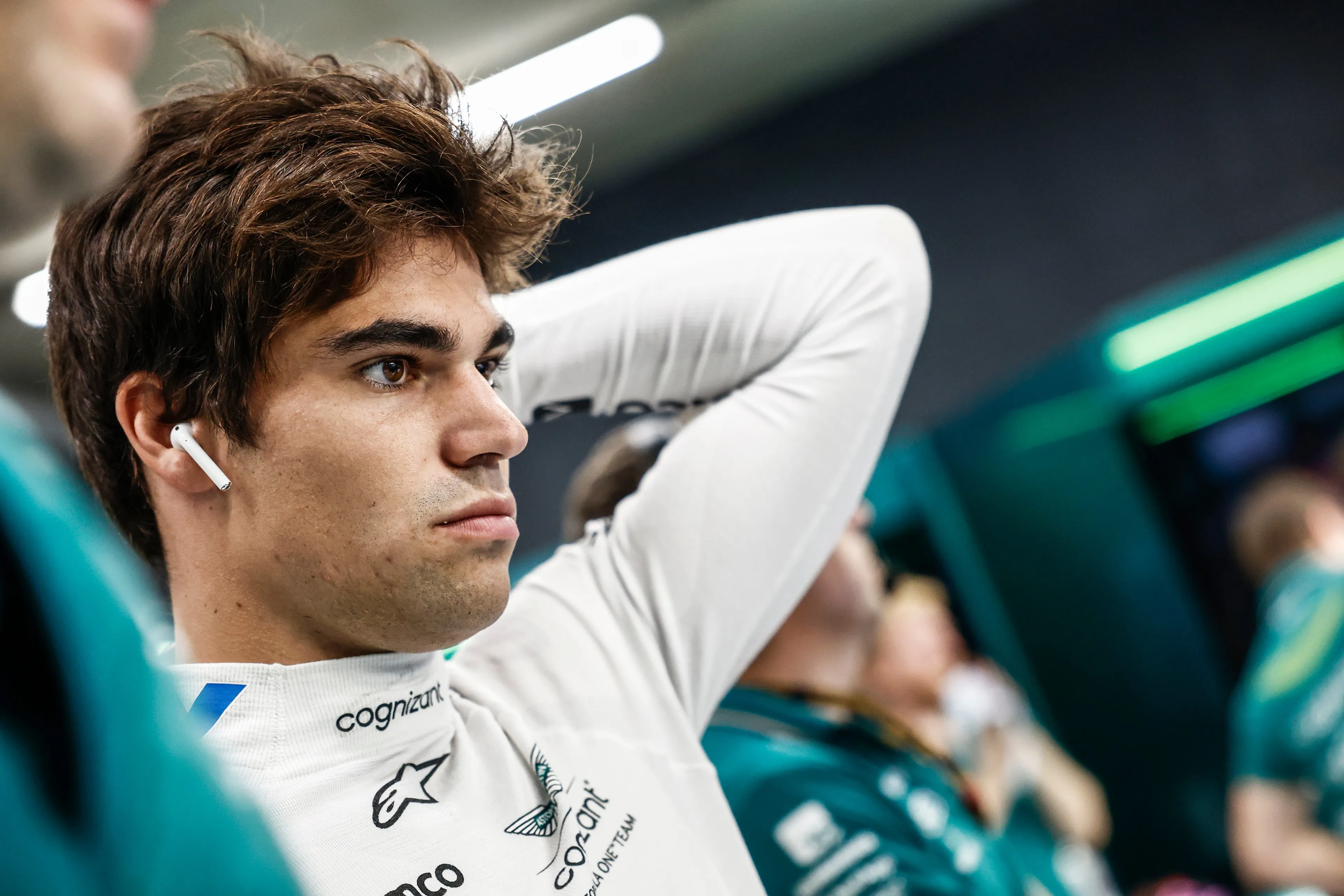Alonso Considering Skipping Miami Sprint Race After Another Penalty From Stewards
F1Tuesday, 23 April 2024 at 09:34
Updated at Tuesday, 23 April 2024 at 09:37

Fernando Alonso proposed it might make more sense for him and his team to skip the Sprint race during the next race weekend in Miami after another "unprecedented" penalty.
The Aston Martin driver Fernando Alonso received a penalty after the end of the sprint race at Shanghai International Circuit for a collision with Carlos Sainz at the Shanghai International Circuit.
The fellow Spaniards had an incredible battle starting in turn number 6 up until the turn number 11, during which they exchanged positions multiple times.
However, stewards were not happy with what Alonso did in turn 9. It looked like he had lost the battle, so he went for a massive dive bomb, which the Ferrari driver didn't expect.
The 42-year-old received a 10-second penalty after the race, which didn't change anything for him because he retired either way, but they also gave him two penalty points on his license.
Read also
Once a driver reaches 12 penalty points, he should be forced to miss the next race, and Alonso is currently at 6 out of 12. Not agreeing with the penalty, he told DAZN, as per Sport Mexico:
"These sanctions are not understood, and I do not share them, especially in the case of license points. Such an incredible penalty is once again unprecedented."
What's more, the Spanish Matador suggested that it made him think about whether it would actually be beneficial for him and his team to attend the sprint race.
"It makes you think if in the next Sprint, you even want to go out for a run. Due to the points that are given and that we are not going to have the tires we use [to use in the Grand Pix], it is almost worth not going out."
F1 won't like Alonso's statement, but what is worrying is that he has a point. Only the first eight drivers receive points in a sprint race, not to mention how small the amount of points is.
Read also
Having the fifth fastest car on the grid, Alonso would be optimistic about a P7 finish, for which he can receive 2 points.
If he saved his tires and power unit by not attending, he could have had a strategic advantage for the race as well as a faster car because he could go with a slightly higher engine power output mode to increase his chances of amassing more points.
To do some quick math, if Alonso achieved P7 in both the sprint race and the Grand Prix, he would score eight points.
If he didn't attend the sprint race and was able to finish at least one position higher in the race, taking advantage of the factors mentioned above, he would score the same amount of points.
This strategy has its ups and downs. On the one hand, the Aston Martin driver would be at less risk of damaging his car by attending fewer races.
On the other hand, every single lap on the track produces valuable data for his team, which is essential when it comes to developing and adjusting the car.
We have seen teams with lower chances of scoring points attend the sprint race, so it is reasonable to assume that the pros of attending outweigh the cons at this point in time.
On the contrary, it would be interesting to see what would happen if one team tried to pull off this strategy and it actually worked out for them.
Read also
POPULAR NEWS

Steiner Warns Red Bull: 2024 Performance Masked By Verstappen's Brilliance

Sainz Sr. Grateful For Ferrari's 'Fantastic Gesture' After Driver Switch

Marko Issues Honest Verdict On Verstappen's Potential Exit: 'You Have To Be Realistic'

Racing Bulls CEO Reveals What Verstappen's Personality Is Like Outside F1 Paddock

Magnussen Discusses 'Crazy' Thing That Separates Verstappen From Hamilton And Others

Hamilton: Driving Ferrari F1 Car For First Time 'One Of Best Feelings Of My Life'
Loading


